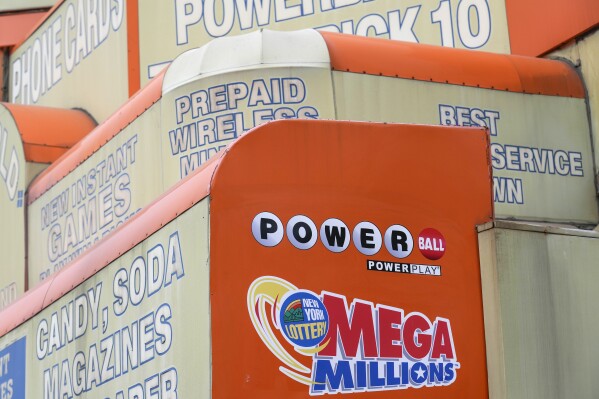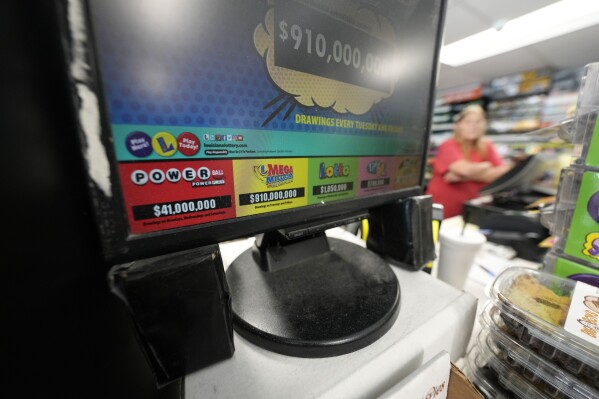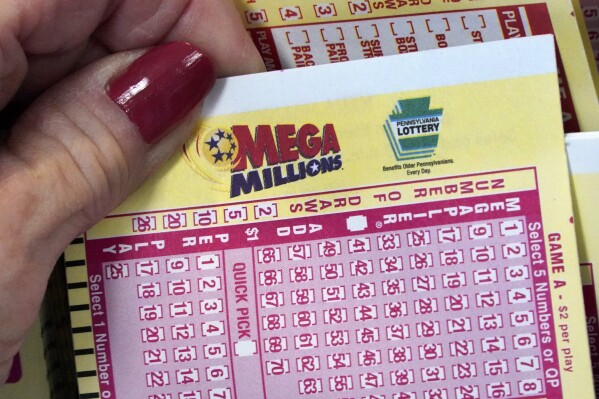Mega Millions jackpot-winning odds are tiny but players have giant dreams
MINNEAPOLIS (AP) — The odds of winning a $1.25 billion Mega Millions jackpot Friday night are infinitesimally small, but that doesn’t stop players from some mighty big daydreams of what they would do if they won the giant prize.
Despite a jackpot winless streak dating back to mid-April, people keep plunking down a few dollars on tickets, noting that someone will eventually win and that they enjoy the chance to fantasize about what would happen if they were the lucky person.
Brandi Walters, 50, of Omaha, Nebraska, buys a lottery ticket when the jackpot grows large and has frequently envisioned what she would do if she hit it big.
“I kind of have this plan,” the hospital nurse confessed Thursday. “The very first thing I would do is take my family on a very nice vacation. Then when I come back, the real plan begins.”
 Mega Millions winner could net $1.25 billion as top lottery prize is still up for grabs
Mega Millions winner could net $1.25 billion as top lottery prize is still up for grabs
 Mega Millions jackpot climbs to $1.05 billion after another drawing without a big winner
Mega Millions jackpot climbs to $1.05 billion after another drawing without a big winner
 Mega Millions lottery jackpot nears $1B ahead of Friday drawing
Mega Millions lottery jackpot nears $1B ahead of Friday drawing
That plan doesn’t include a new house or expensive car. Instead, Walters would backpack around the world for a year and, upon her return, set up a foundation “where I could do special things for interests I find worthy.” She’d help her family financially. She’d volunteer more. And she would set up a farmstead in a third-world country and hire local people to help run it.
“Other than that, the way I live wouldn’t change that much,” she said. “It wouldn’t stop me from shopping at Target.”
In Minneapolis, Reid Hanson, 51, was taking his dog for a walk when he stopped in at a Mobil gas station to buy a couple Mega Millions tickets.
“There’s not one bit of financial sense that goes into buying a lottery ticket,” he said. “It’s more of a fun sort of daydream to say, ‘Oh, what if?’”
Hanson said that if he did win, he might buy property in Hawaii and donate to charities to help save the environment, animals, water, climate and renewable energy.
Cody Jackson-Strong, 29, also stopped in at the Minneapolis gas station to buy a Mega Millions ticket. Jackson-Strong, who said he is homeless and struggling with drug addiction, noted he rarely buys lottery tickets, but the potential $1.25 billion would be “life changing,” so he paid out $2 on Thursday.
He dreams about spending the money on helping other homeless people struggling with addiction. He would open a jobs center, he said, and help clean trash from places where homeless people stay. And he thinks of opening a shop to work on motorcycles, buying a house, learning how to make music and buying items for homeless kids.
Thinking about winning “makes me feel hopeful and happier,” he said. “I would, like, buy everything in a store and just give it to kids who are struggling.”
Sean Burns Sr., of Robbinsdale, Minnesota, says if he won the jackpot, he would give 10% to “the man upstairs” and would be sure to fund programs in his community, including those to help single mothers.
“You always think about, you know, what can you do,” he said. “If it happens, it happens, but it would be a great thing if it did happen.”
Kathy Floersch, 48, an insurance agent from Omaha, said she buys a lottery ticket when the jackpots balloon. She dreams of traveling.
“I really want to go to Ireland. I’ve always wanted to go to Jamaica or the Bahamas,” Floersch said.
She and her fiancé have discussed buying vacation homes: one in Florida for her; one in Branson, Missouri, for him.
“And I would spring for a big wedding reception,” Floersch said. “I grew up dancing at wedding receptions with my siblings, and it’s just something I’ve always wanted.”
Despite the enduring hope of instant riches, Mega Millions’ long odds of 1 in 302.6 million to win the jackpot means it could be a while before someone takes home the money. There now have been 30 straight drawings without a jackpot winner, which has enabled the prize to grow to the sixth-largest in U.S. history.
The $1.25 billion jackpot would be for a sole winner who is paid over 30 years through an annuity. Winners almost always prefer a lump sum payment, which would be an estimated $625.3 million.
The winnings also would be subject to federal taxes, and many states also tax lottery prizes.
Mega Millions is played in 45 states, Washington, D.C., and the U.S. Virgin Islands.
___
Beck reported from Omaha, Nebraska. Associated Press writer Scott McFetridge in Des Moines, Iowa; and video journalist Mark Vancleave, in Robbinsdale, Minnesota; contributed to this report.
Disclaimer: The copyright of this article belongs to the original author. Reposting this article is solely for the purpose of information dissemination and does not constitute any investment advice. If there is any infringement, please contact us immediately. We will make corrections or deletions as necessary. Thank you.


